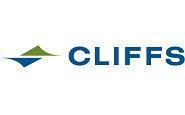Prices

July 1, 2021
Goncalves: Cliffs Has No Plans to Produce Merchant Pig Iron
Written by Tim Triplett
Though he admits it was not the original plan, Cleveland-Cliffs Chairman, President and CEO Lourenco Goncalves said Wednesday at AISTech that his company no longer intends to produce merchant pig iron for sale to competitors, as has been widely speculated.
In the past two years, Cleveland-Cliffs has purchased AK Steel and ArcelorMittal USA, making it the largest flat-rolled steel producer in North America. In addition to its eight blast furnaces, the company also now operates four electric arc furnaces (EAFs). It also has extensive iron ore holdings in the Minnesota iron range and opened a new plant for production of hot-briquetted iron (HBI) in Toledo, Ohio, earlier this year. So the company has something of a complicated relationship with the rest of the industry when it comes to production and consumption of scrap and scrap substitutes, as well as the need to reduce carbon emissions to stem climate change.
“I originally approached AK Steel to buy the blast furnace at Ashland. That was my intention at the time, to extend the metallics footprint of Cleveland-Cliffs to serve the EAFs. Then I realized I could buy the entire company. After that, I never talked about Ashland as a supplier of pig iron for the market,” Goncalves said.
Cliffs’ primary goal is to meet its own raw material needs. “Will I have enough pellets from the new DRI (direct-reduced iron) facility to supply the market or do something inside the company? It’s a business. Let’s see how things go,” he said.
Commenting on Cleveland-Cliffs’ strategy to reduce carbon emissions, Goncalves said his plan is to increase the use of HBI/DRI in both its blast furnaces and EAFs. “HBI is an integral part of our efforts to continue to reduce our emissions. We are using HBI in five of our eight blast furnaces at this point. My goal is to use it in all eight blast furnaces and to continue to increase the percentage of HBI used in [each melt]. Why? When you use HBI in a blast furnace, you are loading iron that is already reduced. So you don’t need the coke to reduce that portion of the batch. We are also using HBI in all four EAF plants. That has eliminated our need to buy prime scrap outside the company.”
He added: “We are confident our CO2 generation will get to a point between now and 2030 that we’ll be able to implement real carbon capture, allowing us to claim being carbon neutral. But we need to continue to knock down carbon. There’s no way to capture it if you continue to produce massive amounts of CO2.”
Meanwhile, the venerable Ashland mill has been razed and the idled No. 3 mill at Indiana Harbor may face the same fate. Goncalves was critical of companies that have resurrected aged facilities from bankruptcy when the capacity was better left idled. “One of the problems of this industry is that these things are like the Highlander. They never die.”
By Tim Triplett, Tim@SteelMarketUpdate.com







